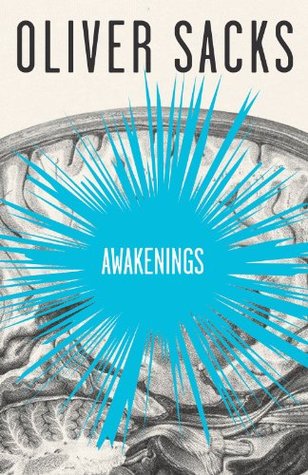This was an interesting book.* Rest in peace, Dr. Sacks.
* Perhaps I should explain in this very long footnote why I found this book to be interesting. I had seen a documentary on PBS about the cognitive relationship with music featuring the author. While it actually tied into a much later work of his called Musicophilia, I realized it might be best to begin with the work he is best know for, primarily to get a sense of his style. I don't normally read medical stories, but this really opened my eyes to Parkinson's disease and how we treat disease in Western medicine. In many ways, L-DOPA presented as serious a problem as the disease itself. Although the initial transformations were miraculous, it was like the drug didn't know when to stop and pushed the patients too far the other direction. Therefore, it was necessary to either scale back or stop L-DOPA, which all too often resulted in patients ending up right back where they started, or worse, due to "personality fragmentation" caused by L-DOPA that was not fully reversible. If I could relate this to anything I've read before, the most obvious candidate would be Flowers For Algernon. Although I love that book dearly, this one is all the more startling in that this really happened. I made a point of seeing the movie afterward. My wife watched over my shoulder and was fairly critical of the entire production, calling the ending "depressing" and accusing Robert De Niro of overacting. However, if you've read the book, you will know that De Niro caught the spirit of these patients extremely well and I don't think he was overacting at all. These patients lived in a completely different world from what we "normal" people experience in our daily lives. As for "depressing", well, I'd say more that it's "real". I think in movies we get so hung up on "magic bullets" and hero stories that to experience a story where medicine does NOT score an unqualified triumph can feel like a failure. Finally, if you've read this far you are probably wondering about this footnote. I am paying tribute to Dr. Sacks's affinity to using footnotes in the text. They are essential to read to fully enjoy the book, although some are so long that I feel he might have been better off integrating them into the text. Some in this edition were in fact moved into the appendices section.

No comments:
Post a Comment